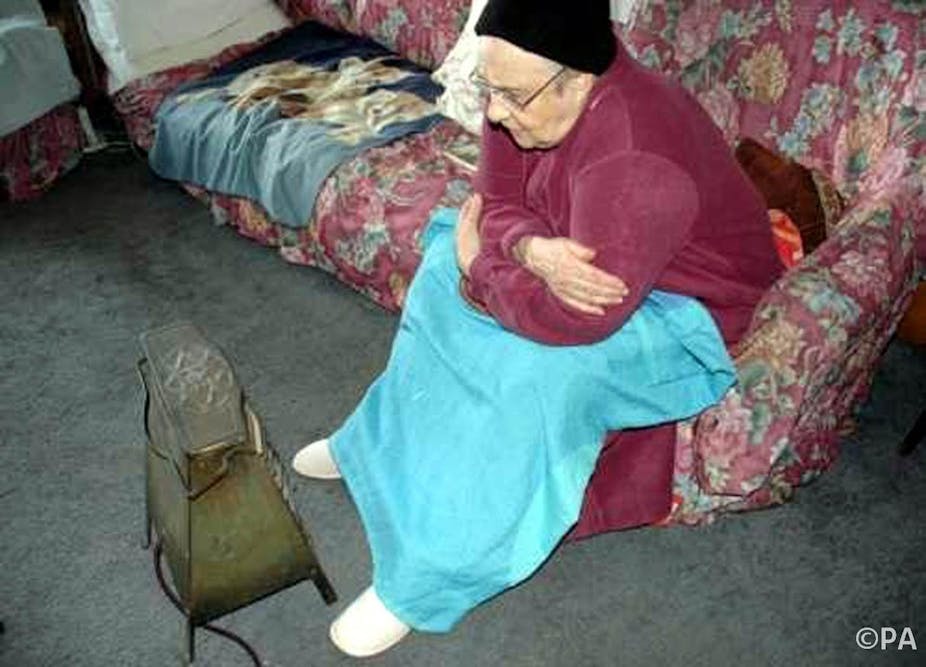In his Autumn Statement the Chancellor fulfilled the pledge to roll back the “green taxes” in order to “save” families £50 a year from their household energy bil. In doing so he has missed an opportunity to properly address the fundamental issue that keeps low income families cold: the poor quality of the buildings in which many live.
To put these in perspective, earlier this year Ofgem estimated that the green levies and taxes added £82, around 6%, to the average household dual-fuel bill of £1,342. The carbon tax, levied on firms generating electricity from fossil fuels, will generate an estimated £1 billion this year – about £40 per household, on average – and brings the total added to bills by these green taxes and levies to £122, or 9%.
The largest element of these green schemes is the Energy Company Obligation, ECO, that requires energy firms to insulate and improve the energy efficiency of hard to treat homes and those with low incomes. The Chancellor has allowed the firms to carry out their obligations over longer periods, essentially increasing the bills to be paid by those whose homes need improvements.
ECO and the other schemes are essential for the UK to address the energy priority of this century: to move to low carbon, secure energy sources, and to use them with far greater efficiency. The strength and basic good sense of this priority saw the government back away from the more drastic cuts proposed, but even so the dilution of ECO simply pushes back the moment Britain’s building stock is brought up to a standard that allows people to keep warm at a price they can afford.
Rather than procrastinating, the Chancellor could have seized the initiative at very little extra cost by reformatting an only recently introduced levy, the Warm Home Discount, which knocks money off the electricity bill of households characterised as vulnerable to fuel poverty, that is, with high energy bills and low income. The discount is funded through consumer bills, but the Chancellor could have paid for it from tax expenditures, which is more progressive and where it should have been in the first place.
Osborne could have wrong-footed the opposition completely and broken away from the current, sterile debate centred on cuts and freezes with a Warm Home Guarantee. Such a scheme should guarantee an energy efficiency makeover and insulation upgrade to any fuel-poor household. And until the work is completed, this guarantee should come with a significantly higher rate of Warm Home Discount.
For example, if the Warm Home Discount for such households was doubled from the current rate of £135 to £270, and if five million households qualified for it, this would cost an extra £650 million, paid for through the extra revenue forecast to come next year from the carbon tax. The energy efficiency upgrade could be carried out as a priority under the ECO funding, which is what it is for anyway, although it would need to be restored to its original level.
Arranged like this, the spending would be targeted more closely at those most in need of it. As the energy efficiency work was carried out, the extra funding from the Warm Home Discount would be reduced, as the promise of warmer homes and lower bills finally reached more and more low-income households. As a bonus, Britain would need to build fewer new power stations as demand dropped.
Unlike a price freeze, this measure would institute the virtuous circle of greater energy efficiency, leading to lower bills, warmer homes, and better protection from rising energy prices. Gradually the historic situation at the root of the problem of poor quality, poorly insulated homes that leave low income households at the mercy of the winter weather and price spikes would be improved. The Chancellor missed the opportunity to set this virtuous circle in motion yesterday, but the opportunity remains for the Budget, or next year’s Autumn Statement. Will a Conservative chancellor ever find the vision to be the champion of low-income households, or must that always be left to the Labour Party?

